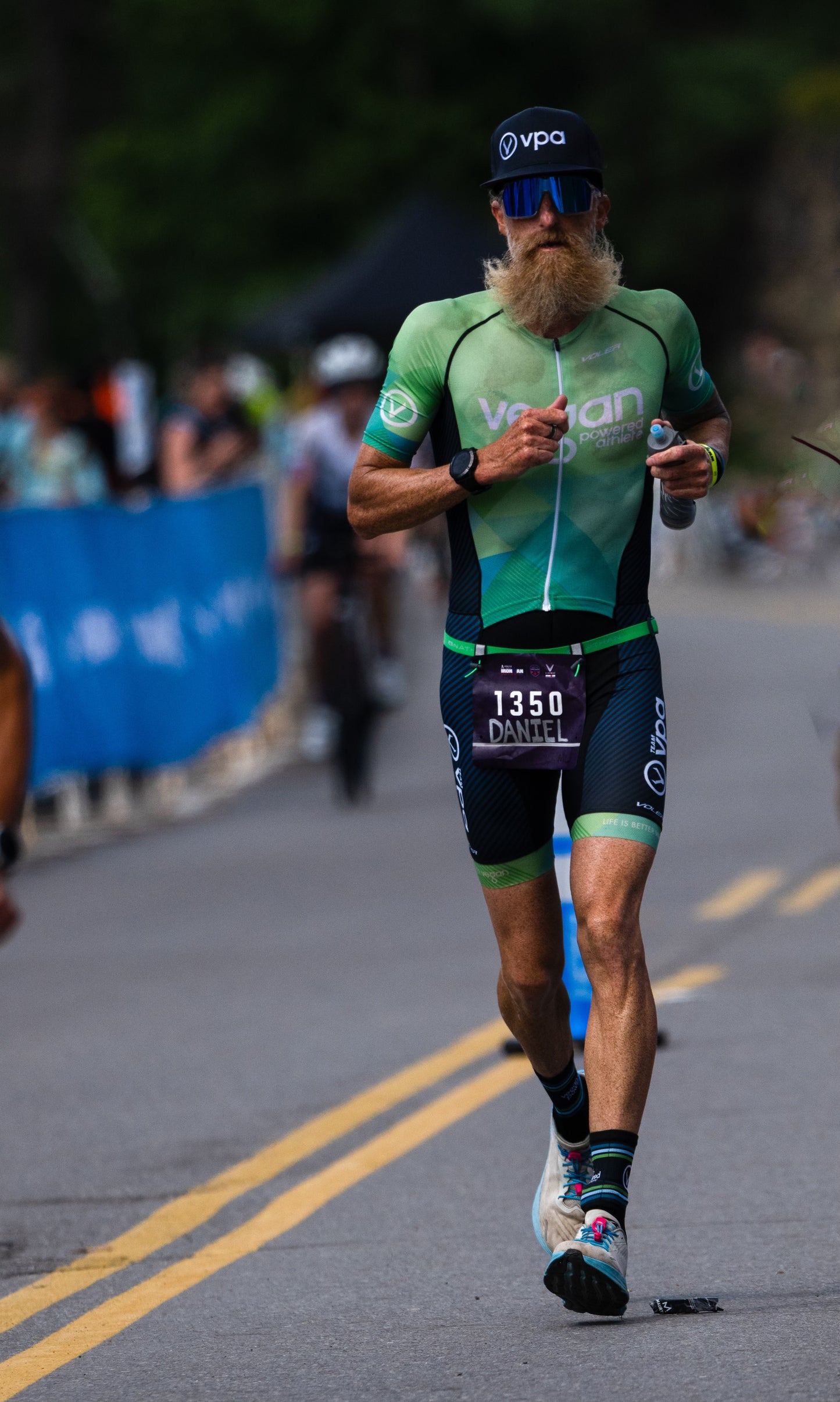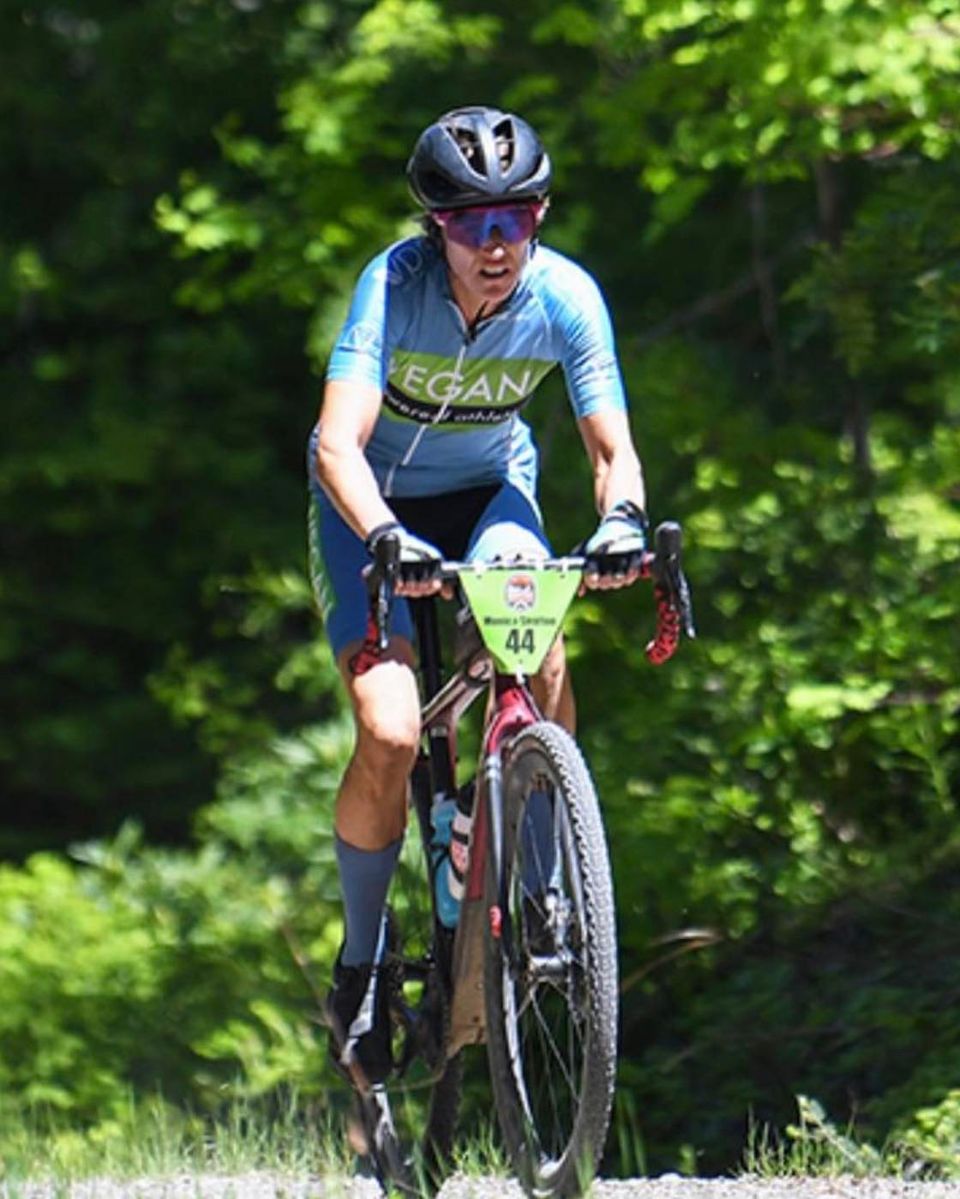
I recently switched up my hydration game during an Ironman run in Lake Placid, and let me tell you, it made all the difference. Instead of relying solely on the aid stations every mile, I decided to carry my own water bottle filled with an electrolyte mix. Being able to take sips in between aid stations was a game changer.
Even though I wasn't in the best running shape, this new hydration strategy helped me shave a whopping 7 minutes off my time compared to previous years on the challenging course. I was pretty stoked about that improvement!
It just goes to show that sometimes small changes can have a big impact on performance. I never would've thought this small change, something as simple as carrying my own water bottle could make such a difference since there is an aid station every mile. But hey, I'll definitely be sticking with this new strategy for future races. Who knows how much more time I could shave off with some more tweaks here and there.
Another tip for staying hydrated is to utilize your hat for ice during hot races. This helps with cooling as well but I chew on the ice in between aid stations which gives me a little extra fluid I may not get otherwise. So next time you're prepping for a race, don't be afraid to think outside the box and try something new. You never know what might end up being a game changer for you.
Hydration is a crucial aspect of athletic performance, particularly for endurance athletes who put their bodies through intense physical exertion over prolonged periods of time. Proper hydration not only affects an athlete's physical well-being but also plays a significant role in their performance and recovery. In this blog, we will explore the importance of hydration for endurance athletes and provide some tips on how they can stay properly hydrated to perform at their best.
One of the key benefits of proper hydration for endurance athletes is maintaining optimal performance. When an athlete is dehydrated, their body is unable to function at its best. Dehydration can lead to fatigue, muscle cramps, reduced coordination, and decreased endurance, all of which can significantly hinder an athlete's performance during training or competition. Research has shown that even mild dehydration (as little as 2% loss of body weight) can result in decreased physical and cognitive performance. Therefore, staying properly hydrated is essential for endurance athletes to perform at their peak.
In addition to performance, hydration also plays a crucial role in the recovery process for endurance athletes. After a strenuous workout or competition, the body needs to replenish fluids lost through sweating in order to recover and repair muscles. Proper hydration speeds up the recovery process by flushing out toxins, delivering nutrients to muscles, and maintaining electrolyte balance. Dehydrated athletes take longer to recover and are at a higher risk of injury, which can impede their training progress and overall performance. By staying properly hydrated, athletes can ensure a quicker recovery time and reduce the risk of injury, allowing them to train consistently and push their limits.
So, how can endurance athletes ensure they stay properly hydrated? Here are some tips to help athletes maintain optimal hydration levels:
1. Drink plenty of water: It may sound simple, but many athletes underestimate the amount of water they need to drink. The general recommendation is to drink at least 8-10 cups of water per day, but endurance athletes may need to drink even more to account for fluid loss during training or competition. A good way to gauge hydration levels is to monitor the color of urine - clear or light-colored urine indicates proper hydration, while dark-colored urine is a sign of dehydration.
2. Pay attention to electrolytes: In addition to water, endurance athletes need to replenish electrolytes lost through sweating, particularly sodium and potassium. Sports drinks or electrolyte supplements can help maintain electrolyte balance during intense exercise, preventing muscle cramps and dehydration.
3. Pre-hydration and post-hydration: Proper hydration should be a consistent practice, not just during training or competition. Athletes should focus on pre-hydration by drinking water before exercise to ensure they start properly hydrated. After exercise, it's crucial to continue hydrating to replenish fluids lost during workouts and aid in recovery.
4. Monitor hydration levels during exercise: Endurance athletes should pay attention to thirst cues and monitor their fluid intake during exercise. It's important to drink water regularly throughout training or competition to avoid dehydration and maintain performance levels.
In conclusion, hydration is a critical aspect of athletic performance for endurance athletes. Proper hydration not only affects an athlete's physical well-being but also plays a significant role in their performance and recovery. By staying properly hydrated, athletes can improve their performance, speed up recovery time, and reduce the risk of injury. With the right hydration strategies in place, endurance athletes can ensure they are operating at their best and pushing their limits in training and competition.
Check out Team VPA partners Untapped Maple, Precision Hydration and Sun Warrior for some great hydration options.







